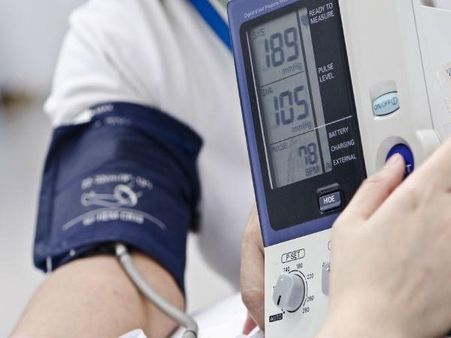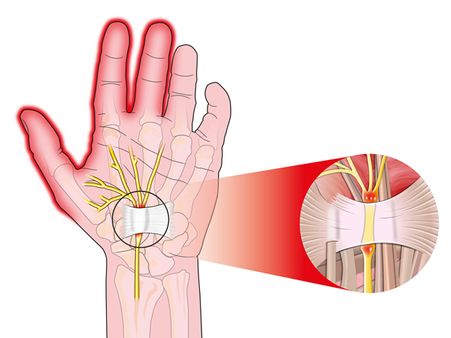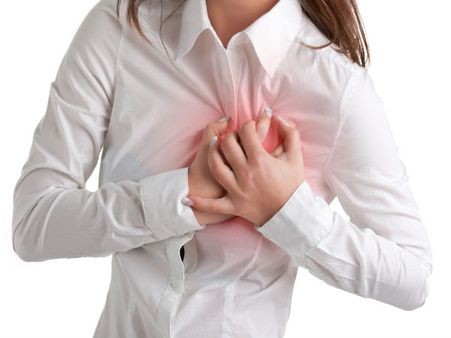Just In
- 2 hrs ago

- 5 hrs ago

- 6 hrs ago

- 7 hrs ago

Don't Miss
- Sports
 IPL 2024: Has KL Rahul Entered The Conversation For A T20 World Cup Spot?
IPL 2024: Has KL Rahul Entered The Conversation For A T20 World Cup Spot? - Movies
 Exclusive! Maamla Legal Hai Season 2: Here's When The Shooting Of Ravi Kishan's Show Will Start
Exclusive! Maamla Legal Hai Season 2: Here's When The Shooting Of Ravi Kishan's Show Will Start - News
 Bengaluru Finally Gets Some Rain After Scorching Heat
Bengaluru Finally Gets Some Rain After Scorching Heat - Education
 UP Board 12th Result Toppers List 2024; Check the Names, Ranks, Marks and Districts here
UP Board 12th Result Toppers List 2024; Check the Names, Ranks, Marks and Districts here - Finance
 Elon Musk Postpones India Trip, Tesla's Indian Market Entry Delayed
Elon Musk Postpones India Trip, Tesla's Indian Market Entry Delayed - Technology
 Best Noise-Cancelling Earbuds Under Rs 5,000: CMF Buds Pro, Redmi Buds 5, Realme Buds Air 5, and More
Best Noise-Cancelling Earbuds Under Rs 5,000: CMF Buds Pro, Redmi Buds 5, Realme Buds Air 5, and More - Automobiles
 Tesla CEO Elon Musk's Much-Awaited Visit to India Deferred, Leaving Questions Unanswered
Tesla CEO Elon Musk's Much-Awaited Visit to India Deferred, Leaving Questions Unanswered - Travel
 Journey From Delhi To Ooty: Top Transport Options And Attractions
Journey From Delhi To Ooty: Top Transport Options And Attractions
How 20 Minutes Of Afternoon Nap Can Be Helpful
Did you know that taking a short nap in the afternoon is actually healthy? Check out the details here.
After the hustle and bustle of the morning hours, a short afternoon siesta is what every human yearns for.
Be it young or old, every individual looks forward to recharging himself during those lazy afternoons.
But one might be surprised to know that a nice 20 minutes of afternoon nap can do wonders to your health and does not signify laziness.

According to Sara C. Maednick, a sleep expert and author of 'Take a Nap! Change Your Life', incredible benefits can be obtained from 15 to 20 minutes of napping.
Come on readers, let us explore and appreciate the much needed advantages of taking that power snooze during the afternoons.

# Boosts Memory:
Studies indicate that individuals who took a power nap of say 20 to 30 minutes showed significant improvement in their vigilance and cognitive skills. They showed a remarkable boost in their work-oriented performance, devoid of any grogginess.
Without a power nap a person can easily become a victim of fatigue and forgetfulness. They can get easily burnt out at the end of the day. But taking a power nap can visibly bring about a dramatic boost in memory.

# Lowers Blood Pressure:
A good news the doctors have revealed is that a mid-day nap would effectively lower blood pressure and can be the major cause for reducing antihypertensive medications. Also, the damage caused by the high blood pressure in the arteries and veins can be reduced.

# Reduces Stress:
Power naps have visible effects in the calming down of nerves. People who take mid-day naps have the correct levels of secretion of a hormone called norepinephrine, which causes stress. An increased level of this hormone can lead to increased stress, blood pressure and heart rate. A person devoid of the afternoon siesta can easily raise the level of secretion of this hormone.

#Increases Alertness:
Alertness is the most important factor in driving vehicles. A quick 20 minute nap not only enhances alertness but also gives a great zeal in whatever work you perform. But a little over 20 minutes nap, can lead to sleep inertia and it might take a while to recover.

# Relaxes The Nerves:
Taking a power nap is sure to relax the nerves and the muscles. Certain toxins are released when the brain is tired, resulting in sluggish activities. The release of these toxins, especially the neurotoxins, gets minimized when one takes a 20 minute short siesta, leading to the relaxation of nerves.

# Improves The Functioning Of The Heart:
Similar to most of the organs of our body, the heart also gets tired and pressurized due to every day's work and tensions. Napping invariably eases this tension and relaxes the heart, thus enhancing its functioning.

# Prevents Cell Damage:
As a result of sleep deprivation or in other words improper sleep, a lot of damage occurs to the cells, especially in the vital organs like the liver, lungs, small intestine, etc. This leads to their deterioration in functioning effectively. Researchers have come to a conclusion that a very short nap reverses the effects of cell damage.
The bottom line is no stigma is associated with afternoon naps. Also, an individual's productivity only gets doubled after taking a 20 minute nap.
A word of caution for taking afternoon naps:
- A little longer than 20-30 minute afternoon naps can lead to sleep inertia, i.e., grogginess which is difficult to shake off.
- Naps should be taken between 1 pm and 4 pm. Naps, after 4 pm may lead to a disrupted sleep in the night. To cut a long story short, take afternoon naps to make your way to good health.
-
 healthWorld Sleep Day 2024: Best Hacks For Sound Sleep That You Must Bookmark As They Will Ensure Overall Wellbeing
healthWorld Sleep Day 2024: Best Hacks For Sound Sleep That You Must Bookmark As They Will Ensure Overall Wellbeing -
 healthDoctor Explains How To Choose The Perfect Orthopedic Mattress To Ensure Spinal Health And Restful Sleep
healthDoctor Explains How To Choose The Perfect Orthopedic Mattress To Ensure Spinal Health And Restful Sleep -
 healthHere's How Often You Should Replace Your Mattress For The Best Quality Sleep
healthHere's How Often You Should Replace Your Mattress For The Best Quality Sleep -
 healthExclusive: Menopausal Symptoms Can Lead To Sleepless Nights For Women, 9 Expert-approved Remedies
healthExclusive: Menopausal Symptoms Can Lead To Sleepless Nights For Women, 9 Expert-approved Remedies -
 yoga spiritualitySwapna Shastra: What Does It Mean To Dream About Being Intimate With Someone?
yoga spiritualitySwapna Shastra: What Does It Mean To Dream About Being Intimate With Someone? -
 beautySkincare SOS: 4 Ways Your Midnight Phone Use Is Ruining Your Skin
beautySkincare SOS: 4 Ways Your Midnight Phone Use Is Ruining Your Skin -
 healthIs It Safe To Sleep With A Mouthguard On?
healthIs It Safe To Sleep With A Mouthguard On? -
 pregnancy parentingKid Have Trouble Sleeping? 3 Foods To Help Children Fall Asleep Faster
pregnancy parentingKid Have Trouble Sleeping? 3 Foods To Help Children Fall Asleep Faster -
 healthIs Your Disturbed Sleep Schedule Making You Gain Weight?
healthIs Your Disturbed Sleep Schedule Making You Gain Weight? -
 pregnancy parentingMom-to-Be? Discover Natural Ways to Get Rid of Pregnancy Sleep Problems
pregnancy parentingMom-to-Be? Discover Natural Ways to Get Rid of Pregnancy Sleep Problems -
 pregnancy parentingSafe Sleep Practices for Infants
pregnancy parentingSafe Sleep Practices for Infants -
 pregnancy parentingMyths Vs Facts: Your Baby Needs To Cry It Out To Learn To Fall Asleep On Their Own
pregnancy parentingMyths Vs Facts: Your Baby Needs To Cry It Out To Learn To Fall Asleep On Their Own


 Click it and Unblock the Notifications
Click it and Unblock the Notifications



